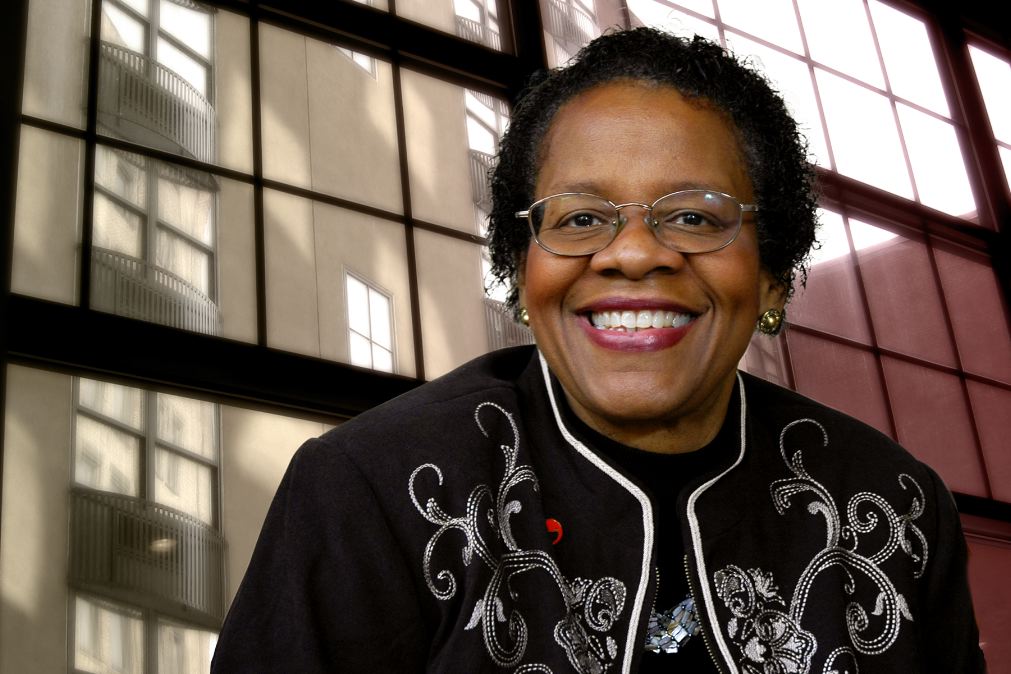 Edith Guffey has spent her adult life in administrative roles with large organizations. After working for several years in student records and admissions at the University of Kansas, she found her home in the national setting of the United Church of Christ in 1991. Guffey initially served as the denomination’s secretary, which included acting as the denomination’s “chief statistician.” In 1999 she was elected Associate General Minister, tasked as the operational executive of the Office of General Ministries. As Guffey’s third and final term in that post draws to a close, she reflected on her ministry in an article for the current edition (Volume 2, Issue 1) of StillSpeaking Magazine. In the article she shares some of the lessons she has learned, including:
Edith Guffey has spent her adult life in administrative roles with large organizations. After working for several years in student records and admissions at the University of Kansas, she found her home in the national setting of the United Church of Christ in 1991. Guffey initially served as the denomination’s secretary, which included acting as the denomination’s “chief statistician.” In 1999 she was elected Associate General Minister, tasked as the operational executive of the Office of General Ministries. As Guffey’s third and final term in that post draws to a close, she reflected on her ministry in an article for the current edition (Volume 2, Issue 1) of StillSpeaking Magazine. In the article she shares some of the lessons she has learned, including:
. . . if I were to write a book there would be a chapter titled, “If you work in the church, just know that being pragmatic only goes so far!” One of the things I have learned over the years is that expecting “the Church” to always make decisions based on facts, figures and logic is an unrealistic expectation.
Sometimes history, passion, and commitments to justice are more important to many. And, yes, sometimes decisions are made, or not made, out of fear of change, out of an anticipated sense of loss and out of an unwillingness to actually see and own the facts and figures and what they mean (p.76).
So What?
Over the last year, I have gone from having never heard the name Edith Guffey to hearing about her on a regular basis and listening to her preach in the church I now serve and at the annual meeting of the Florida Conference of the United Church of Christ. While my own experiences are limited, I have found the descriptive words she chooses for herself, in her writing and her speaking, to be accurate. She is passionate about the business of the church, but also realistic about how church really works.
The local church is a business. The national church is a business. The local church isn’t a business. The national church isn’t a business. I believe all of these characterizations to be accurate and appreciate Guffey’s honesty about how these truths play out in the everyday life of the church in all its many forms.
Do you agree with Guffey that while pragmatism is a needed virtue, it alone is never adequate (even when combined with exemplary business minds and skills) for guiding the church? If so, how do you utilize the best practices of these disciplines while also allowing room for the many trump cards she named and the work of the Holy Spirit?